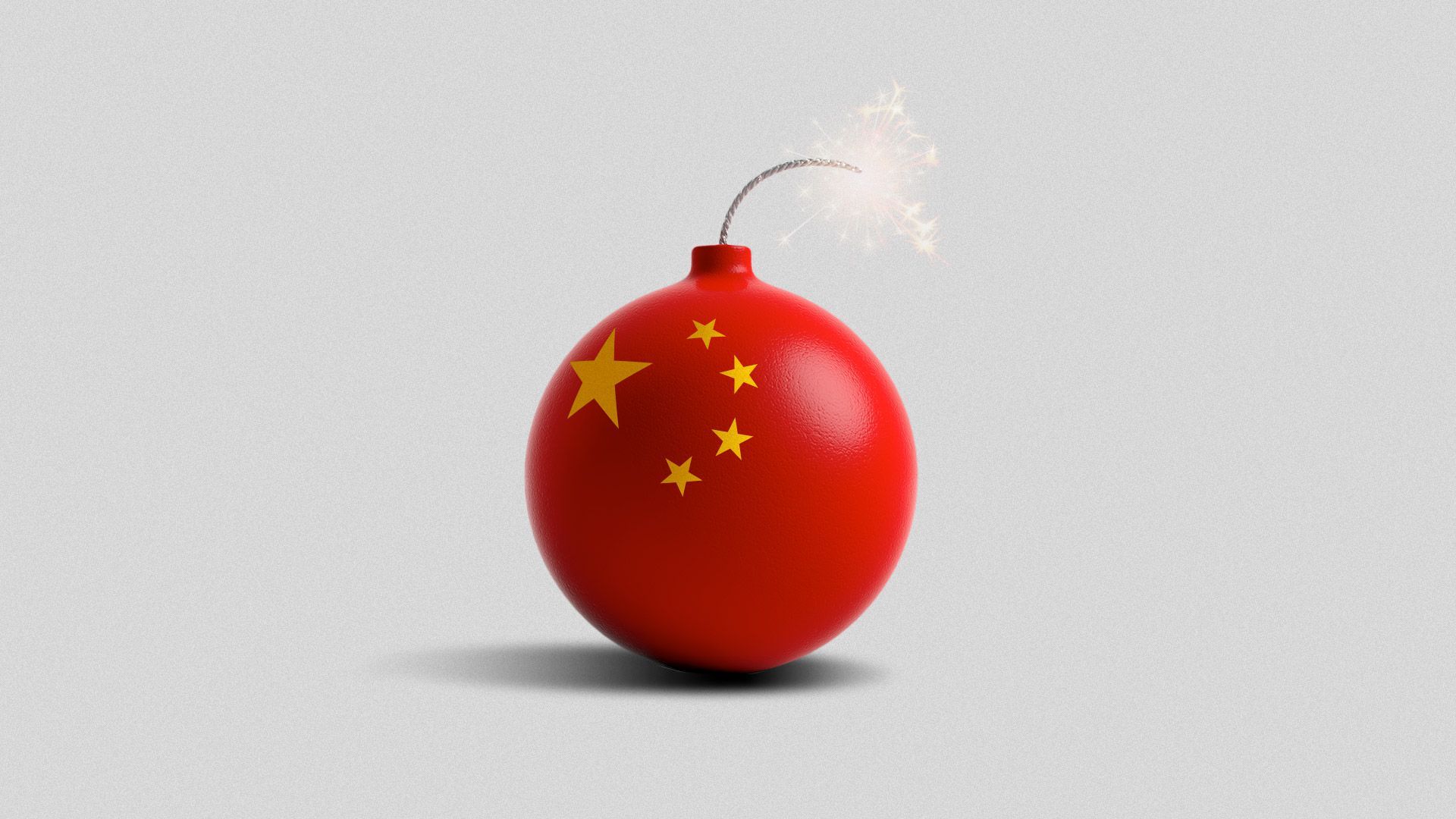The Chinese national security threat is bigger than Huawei
Add Axios as your preferred source to
see more of our stories on Google.

Illustration: Aïda Amer/Axios
The consensus in Washington is increasingly clear: The security threat to the U.S. from Chinese firms is bigger than just Huawei.
Why it matters: If the administration views every Chinese company with suspicion, it could prolong the trade war and put the U.S. and China on a crash course toward a swift technological decoupling.
"The State Department and the White House and Congress are all saying it's not just Huawei, but all Chinese companies are part of China's military-civil fusion complex and are a national security threat."— Samm Sacks, a China expert at New America
Context: In a September speech, Christopher Ford, an assistant secretary at the State Department, warned not just of Huawei — the telecom giant sanctioned by the administration in May — but also "its siblings."
- "This narrative is creating a lot more pressure on Chinese companies," Sacks says.
- While Huawei has grabbed most of the recent headlines, attention is now turning to other Chinese firms, like ByteDance, which runs the wildly popular TikTok video app.
Driving the news: The NBA's fallout with China over a general manager's tweet regarding the Hong Kong protests has raised concerns about the Chinese Communist Party's ability to enforce censorship on U.S. soil.
Activision Blizzard, an American gaming company that counts the Chinese tech giant Tencent as an investor, was criticized for suspending a Hong Kong-based gamer who supported the protest movement.
Moderators at TikTok — the short-form video-sharing app that is habit-forming among U.S. kids — are instructed to censor videos that mention topics that bother the Chinese Communist Party, including Tiananmen Square and Tibetan independence, according to leaked documents viewed by the Guardian.
- The Guardian report prompted Sen. Marco Rubio to call for an investigation of the app.
- TikTok announced Tuesday it had hired two former congressmen and was convening a panel of outside experts to review its content moderation policies.
Chinese firms are also prompting concerns about data privacy.
- Experts say TikTok could become China's next big weapon in the race for personal data. "Think about all the data that TikTok has on American teenagers," says Sacks.
- In May, the U.S. government pushed China's Kunlun to sell off the American dating app Grindr over similar worries about data privacy.
All the while, Washington's rhetoric and policies have grown more hawkish.
- Congress has strengthened CFIUS, the Treasury Department's committee for reviewing foreign investments in the U.S.
- "We understand that the program is staffing up in ways that suggest increased scrutiny is the new norm for the foreseeable future," says Doug Barry of the U.S.-China Business Council.
But, but, but: A heavy-handed approach to Chinese firms has a host of consequences.
- "No one should take national security lightly, but the real risk here is government overreach," Barry says.
- The government risks making U.S. companies less competitive in the international market by prohibiting them from selling products to Chinese companies — and pushing those companies to buy the same goods from Japan or South Korea, Barry says.
- A true decoupling that gives the U.S. no visibility into technological advancement in China could be "really dangerous," says Sacks.
- "Gene-editing? AI? These are technologies that are going to fundamentally change society, and if China and the U.S. go down completely different paths here, there could be dire consequences for humanity," says Sacks.
Go deeper: How Huawei is weathering U.S. sanctions
